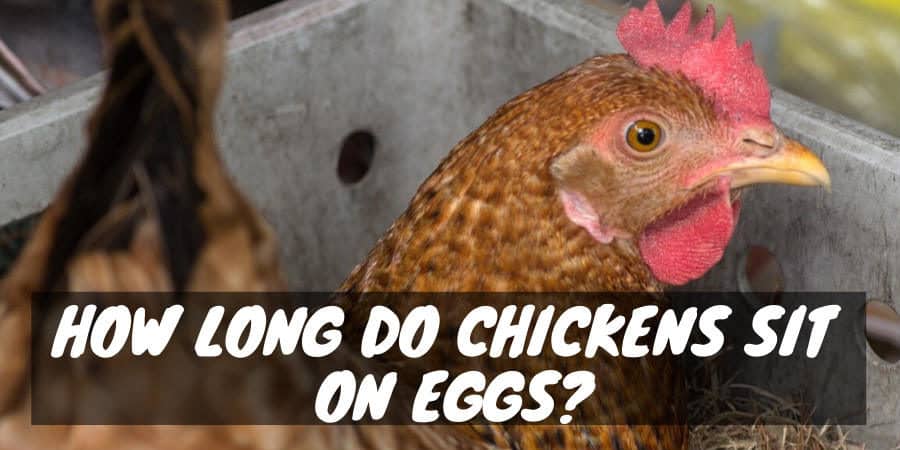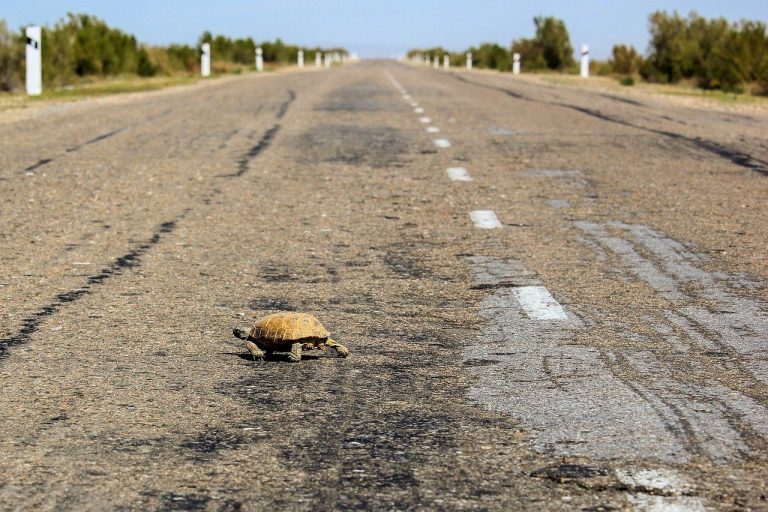How Long Do Chickens Sit On Eggs Before They Hatch
Have you ever wondered how long chickens sit on their eggs before they hatch? Well, look no further because we’re here to dive into this fascinating topic. So, how long do chickens actually sit on their eggs before those adorable chicks emerge into the world? Let’s find out together!
When it comes to incubating their eggs, chickens are amazing parents. They diligently sit on their eggs to keep them warm and cozy. But just how long do they have to patiently wait? Well, let’s crack this question wide open and discover the answer.
So, if you’re curious to learn about the incredible journey from egg to chick, keep reading! We’ll explore the timeline of a chicken’s incubation process and uncover the secrets behind this awe-inspiring natural phenomenon. Get ready to hatch your knowledge about how long chickens sit on their eggs before they hatch!
Chicken eggs typically require 21 days of incubation before they hatch. During this time, mother hens diligently sit on their eggs to keep them warm, maintaining a temperature of around 99.5°F (37.5°C). They rotate the eggs frequently and regulate humidity levels. This nurturing process is crucial for the growth and development of the embryos inside the eggs. After the 21-day period, adorable chicks emerge from the shells, ready to embark on their chicken adventures.

How Long Do Chickens Sit on Eggs Before They Hatch: A Comprehensive Guide
Are you curious about the period of time a chicken spends incubating its eggs? If so, you’ve come to the right place. In this article, we will explore the fascinating world of chicken egg incubation and discover how long chickens sit on their eggs before they hatch. Whether you’re a backyard poultry enthusiast or simply want to satisfy your curiosity, read on to learn all about this remarkable process.
The Incubation Period: A Closer Look at Chicken Egg Development
When a hen lays an egg, the development of an embryo begins. For the eggs to hatch successfully, they need to be kept in specific conditions. This is where the hen’s instinct to sit on the eggs, known as brooding, comes into play. The incubation period for chicken eggs typically lasts 21 days, though this can vary slightly depending on factors such as breed and environmental conditions.
During the incubation period, the hen maintains a constant temperature of around 99 degrees Fahrenheit (37.5 degrees Celsius) by sitting on the eggs and using her body heat. At the same time, the eggs require a certain level of humidity for proper development. The hen regulates the moisture levels by periodically adding droplets of water to the eggs with her beak. This careful balance of temperature and humidity is crucial for the eggs to develop and eventually hatch into healthy chicks.
Factors Affecting the Incubation Period
While the average incubation period for chicken eggs is 21 days, it’s worth noting that this timeframe can be influenced by various factors. Let’s explore some of the key factors that can affect the length of the incubation period:
1. Breed
Different breeds of chickens may have slightly different incubation periods. For example, heritage breeds tend to have a longer incubation period compared to modern commercial breeds.
2. Environment
The environmental conditions during incubation, such as temperature and humidity levels, can impact the incubation period. Extreme variations in temperature or humidity can affect the development of the eggs.
3. Egg Storage
If eggs are not collected promptly and stored properly after being laid, their viability may be affected. Eggs that have been stored for longer periods may require additional time to hatch.
The Stages of Incubation
During the 21-day incubation period, the chicken embryo goes through several development stages. Let’s take a closer look at these stages:
1. Day 1-3: Cell Division
After fertilization, the first few days involve rapid cell division within the egg. The embryo starts to take shape as the cells multiply.
2. Day 4-7: Organ Development
The major organs of the chick begin to form during this stage. The heart, brain, and spinal cord start to develop, and the embryo takes on a more recognizable shape.
3. Day 8-14: Feather Formation
Feathers begin to develop around the 8th day of incubation. The embryo also starts to grow in size and develops eyes.
4. Day 15-20: Beak and Claw Development
During this period, the chick’s beak, claws, and scales on the legs begin to grow. The feathers become more visible, and the chick assumes its final position in the egg, preparing for pip (hatching).
5. Day 21: Hatching
On the 21st day, the fully developed chick starts the hatching process. It uses a special egg tooth to break through the shell and finally emerges into the world.
Tips for Successful Egg Incubation
If you’re interested in incubating chicken eggs yourself, here are some tips to increase your chances of success:
1. Start with Fresh, Fertile Eggs
Eggs that are less than a week old and have been stored in cool conditions have a higher chance of successful hatching. Ensure that the eggs are fertile by having a male rooster in your flock.
2. Provide the Right Conditions
Invest in a reliable incubator that can maintain the correct temperature and humidity levels consistently. Monitor these conditions closely throughout the incubation period.
3. Rotate the Eggs
To imitate a hen’s natural behavior, rotate the eggs multiple times a day. This helps prevent the embryo from sticking to the shell and promotes even development.
4. Keep a Record
Keeping track of important details, such as the date the eggs were set, the temperature, and the humidity levels, can help you troubleshoot any issues that may arise during incubation.
5. Be Patient
Resist the temptation to intervene if the eggs don’t hatch on the exact 21st day. Some chicks may take a little longer to hatch, and interfering can cause harm. Give them time to hatch naturally.
Conclusion
Understanding the incubation period of chicken eggs and the process of hatching is not only fascinating but also essential for anyone interested in raising chickens or simply expanding their knowledge. From the 21-day incubation period to the various stages of embryo development, there is so much to learn. By providing the right conditions and following the tips mentioned, you can increase your chances of successfully incubating and hatching chicken eggs. So, get ready to welcome adorable new chicks into your flock, and enjoy the rewarding experience of witnessing the miracle of life firsthand.
Key Takeaways: How Long Do Chickens Sit on Eggs before They Hatch?
- Chickens sit on their eggs for about 21 days before they hatch.
- During this time, the hen keeps the eggs warm by sitting on them and rotating them regularly.
- The hen’s body temperature helps to incubate the eggs and provide the necessary warmth for development.
- If the eggs are not kept at the right temperature or are not turned regularly, they may not hatch.
- Once the eggs hatch, the mother hen continues to care for her chicks, keeping them warm and protecting them.
Frequently Asked Questions
How long does it take for chickens to hatch their eggs?
After a hen has laid her eggs, she will begin the incubation process. On average, it takes about 21 days for chicken eggs to hatch. However, the exact duration can vary slightly depending on various factors such as temperature and breed. It’s important to note that this timeframe specifically applies to chicken eggs, as incubation periods may vary for other types of birds.
During the incubation period, the hen will sit on the eggs to keep them warm. She will turn the eggs several times a day to ensure even heat distribution and proper development. The hen’s body heat, along with the right level of humidity, creates an ideal environment for the embryos to grow and develop into chicks.
What is the role of a chicken during the incubation process?
Chickens play a crucial role in the incubation process, as they are responsible for ensuring the eggs receive the necessary warmth and humidity to develop into chicks. The hen will sit on the eggs to provide them with the optimal temperature, which should be around 99.5°F (37.5°C).
During the incubation period, the hen will also turn the eggs multiple times a day. This rotation helps distribute the heat evenly and prevents the embryos from sticking to the inside of the shell. It also allows the embryos to receive nutrients from the yolk and eliminates the risk of moisture accumulation on one side of the egg, which could affect development. The hen’s dedication to incubating the eggs is vital for successful hatching.
Can chicken eggs hatch without a hen?
Yes, it is possible for chicken eggs to hatch without a hen. This process is known as artificial incubation. Using an incubator, which is a device that replicates the conditions of a nesting hen, you can provide the eggs with the necessary warmth and humidity for them to develop.
An incubator maintains a consistent temperature and humidity level, turning the eggs automatically at regular intervals. By carefully following the instructions and monitoring the conditions, you can successfully hatch chicken eggs without the presence of a hen. However, it’s important to note that artificial incubation requires proper knowledge and attention to detail to ensure the best possible outcome.
What happens if a hen does not sit on her eggs?
If a hen does not sit on her eggs, they will not hatch. The incubation process is essential for the development of the embryos inside the eggs. When a hen is not dedicated to sitting on her eggs, the temperature and humidity required for proper development are not maintained. As a result, the embryos will not receive the necessary conditions for growth.
Without the warmth and constant turning provided by the hen, the embryos will not develop properly, leading to unsuccessful hatching. It is crucial for the hen to stay committed to incubating her eggs for the required duration to give them the best chance of hatching successfully.
What factors can influence the hatching time of chicken eggs?
Several factors can influence the hatching time of chicken eggs. Variation in genetics, specific breed characteristics, and environmental conditions such as temperature and humidity can all play a role in altering the duration of incubation. Additionally, fluctuations in these factors during the incubation period can impact the hatching time as well.
It’s important to regulate the conditions within the nesting environment to provide a stable and suitable atmosphere for egg development. Consistently monitoring and adjusting the temperature and humidity levels can help ensure that the eggs hatch within the expected timeframe. By understanding the influence of these factors and taking appropriate measures, you can increase the chances of successful hatching.

Summary
When chickens sit on eggs, it takes about 21 days for them to hatch. The hen keeps the eggs warm by sitting on them and turning them regularly. During this time, it’s important to provide the hen with a quiet and safe space.
It’s fascinating to watch the process of a chick developing inside the egg. But remember, patience is key when waiting for the eggs to hatch!

